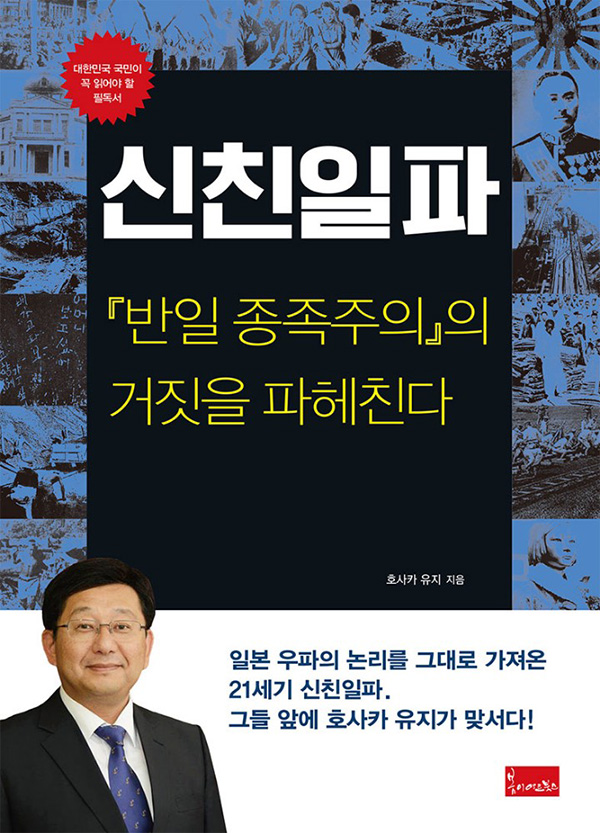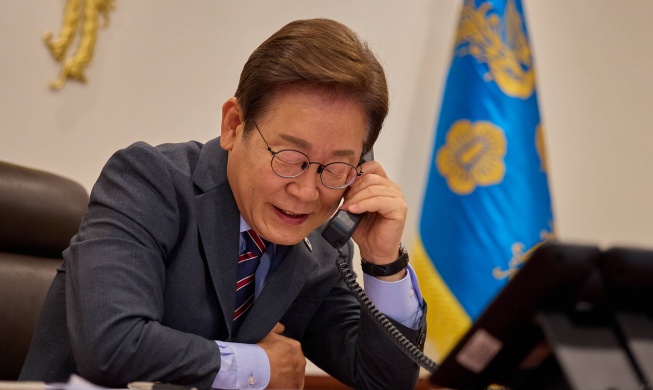
"Neo Pro-Japanese Group," a book written by Sejong University professor Yuji Hosaka and published on April 4, criticizes a pro-Japanese group in Korea that unilaterally follows the logic of the extreme right-wing in Japan and urges the group to face the historical truth. (Korea.net DB)
By Yoon Sojung
"We desperately need to have eyes that can clearly distinguish what is truth," said Yuji Hosaka, a leading expert on Korea-Japan relations based in Seoul, in his latest book "Neo Pro-Japanese Group" published on April 4.
In the book, Hosaka, a political science professor at Sejong University in Seoul, voiced sharp criticism toward the book "Anti-Japan Tribalism" published in July last year by Lee Young-hoon, president of Nakseongdae Institute of Economic Research, and five co-authors. Calling the six a "neo pro-Japanese group," the professor said they follow the logic of right-wing extremists in Japan.
Urging the six authors to have a scholar's conscience, Hosaka said they must not distort history and should face the truth, adding, "The logic and writings of this neo pro-Japanese group will lead Korea toward a path of destruction."
He said he proved the falseness and fallacy of their arguments by presenting historical documents and data on key issues in bilateral relations, such as the plight of forced labor victims and "comfort women," or those forced into sexual slavery by the Japanese military.
On the forced laborers, the professor first pointed out that at the time, coal miners in Japan were replaced with prisoners because of tough working conditions. The Japanese government also mobilized workers to the mines by force, including Koreans and Chinese, he added.
In refuting the group's denial of forced labor, Hosaka wrote that the workers suffered human rights violations like violence and exploitation and unfair treatment such as wage discrimination and forced savings.
Turning to the group's denial that the comfort women were forced into sexual slavery, the professor said, "The Japanese military's comfort women system was a wartime sex crime committed by the Japanese military against women in the countries under their colonial rule." He also presented data to back his argument like documents from the Japanese Ministry of Home Affairs and the Japanese military, as well as testimony from the victims.
In the book, Hosaka also blasted Japan's sovereignty claim to Dokdo, Korea's easternmost island in the East Sea, listing historical data proving Dokdo is Korean territory from as early as before the era of the ancient Three Kingdoms.
On a maligned agreement between the two countries early in the 20th century, he said, "The Eulsa Treaty, which Korea was forced to sign under threat from Japanese imperialism in November 1905, lacks the signature of Emperor Gojong or the stamp of the royal seal, therefore it is null and void."
For this reason, Hosaka said, "Japan claimed sovereignty over Dokdo and informed Korea of this in November 1906, but it came after the Eulsa Treaty was signed. So Japan’s sovereignty claim to Dokdo itself is null and void under international law."

"Neo Pro-Japanese Group," which was published on April 4, has received major media spotlight and is available at the politics and society sections of major bookstores in Korea. The author also plans a Japanese-language edition of his book. (Bomiart Books)
arete@korea.kr
Most popular
- Military discharge sets stage for reunion of all 7 BTS members
- BTS to mark 12th anniversary of debut with 2-week festival
- Lee Jae-myung officially sworn in as nation's 21st president
- Presidents Lee, Trump discuss tariff deal in first phone talks
- President's 1st executive order is launch of economic task force
